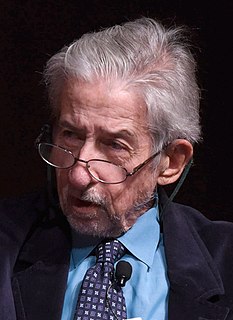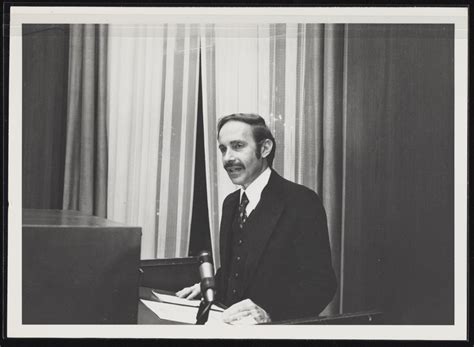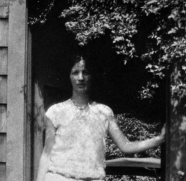A Quote by Isaac Bashevis Singer
In the history of old Jewish literature there was never any basic difference between the poet and the prophet. Our ancient poetry often became law and a way of life.
Related Quotes
Since I was 18 years old, I have taught the Bible. For the last fifteen or twenty years, I have taught every Sunday when I was home or near my own house, so that would be 35 or 40 times per year. Half of those Sundays, the text comes from the Hebrew Bible. I have had a deep personal interest in the Holy Land and in the teachings of the Hebrew people. God has a special position for the Jewish people, the Hebrews, or whatever. I know the difference between ancient Israel and Judaea, and I know the history. I don't have any problem with the Jewish people.
There is something essential and necessary about the immediacy and democracy of poetry. If you look at the history of literature, poetry is the one enduring genre from Homer to Ashbery - no other literary form has lasted as long. The novel is only two or three hundred years old... And yes, it's mainstream if we look back, we often turn to poetry to encapsulate what was going on in a particular moment because it crystalizes the experience in a very condensed and meaningful way.
Canon law pertains to Catholics. Jewish law pertains only to Jews. But the sharia dictates every basic aspect of human life, asserts its authority over non-Muslims, unlike Jewish law and unlike canon law, which is why they're slaughtering Christians, they're slaughtering secular Muslims across the Muslim world.
More than any other contemporary British playwright, Tom Stoppard populates his plays -- from Rosencrantz and Guildenstern Are Dead to The Invention of Love (his portrait of the poet and scholar A. E. Housman) -- with characters from life and literature. But one cannot always tell the difference between those who are real and those who are imaginary.
It is not possible, for a poet, writing in any language, to protect himself from the tragic elements in human life.... [ellipsis in source] Illness, old age, and death--subjects as ancient as humanity--these are the subjects that the poet must speak of very nearly from the first moment that he begins to speak.
A trouble with poetry is the presence of presumptuousness in poetry, the sense you get in a poem that the poet takes for granted an interest on the reader's part in the poet's autobiographical life, in the poet's memories, problems, difficulties and even minor perceptions. I try to presume that no one is interested in me. And I think experience bears that out. No one's interested in the experiences of a stranger - let's put it that way. And then you have difficulty combined with presumptuousness, which is the most dire trouble with poetry.
Loneliness is necessary for pure poetry. When someone intrudes into the poet's life (and any sudden personal contact, whether in the bed or in the heart, is an intrusion) the poet loses his or her balance for a moment, slips into being what he or she is, uses his or her poetry as one would use money or sympathy. The person who writes the poetry emerges, tentatively, like a hermit crab from a conch shell. The poet, for that instant, ceases to be a dead person.
Another trouble with poetry - and I'm gonna stop the list at two - is the presence of presumptuousness in poetry, the sense you get in a poem that the poet takes for granted an interest on the reader's part in the poet's autobiographical life, in the poet's memories, problems, difficulties and even minor perceptions.
I wrote poetry for seven or eight years, maybe longer, before I could say I was a poet. If people asked, I'd say I wrote poetry; I wouldn't go further. I was in my mid- to late-thirties before I felt that I was a poet, which I think meant that I had begun to embody my poems in some way. I wasn't just a writer of them. Hard to say what, as a poet, my place in the world is. Some place probably between recognition and neglect.





































